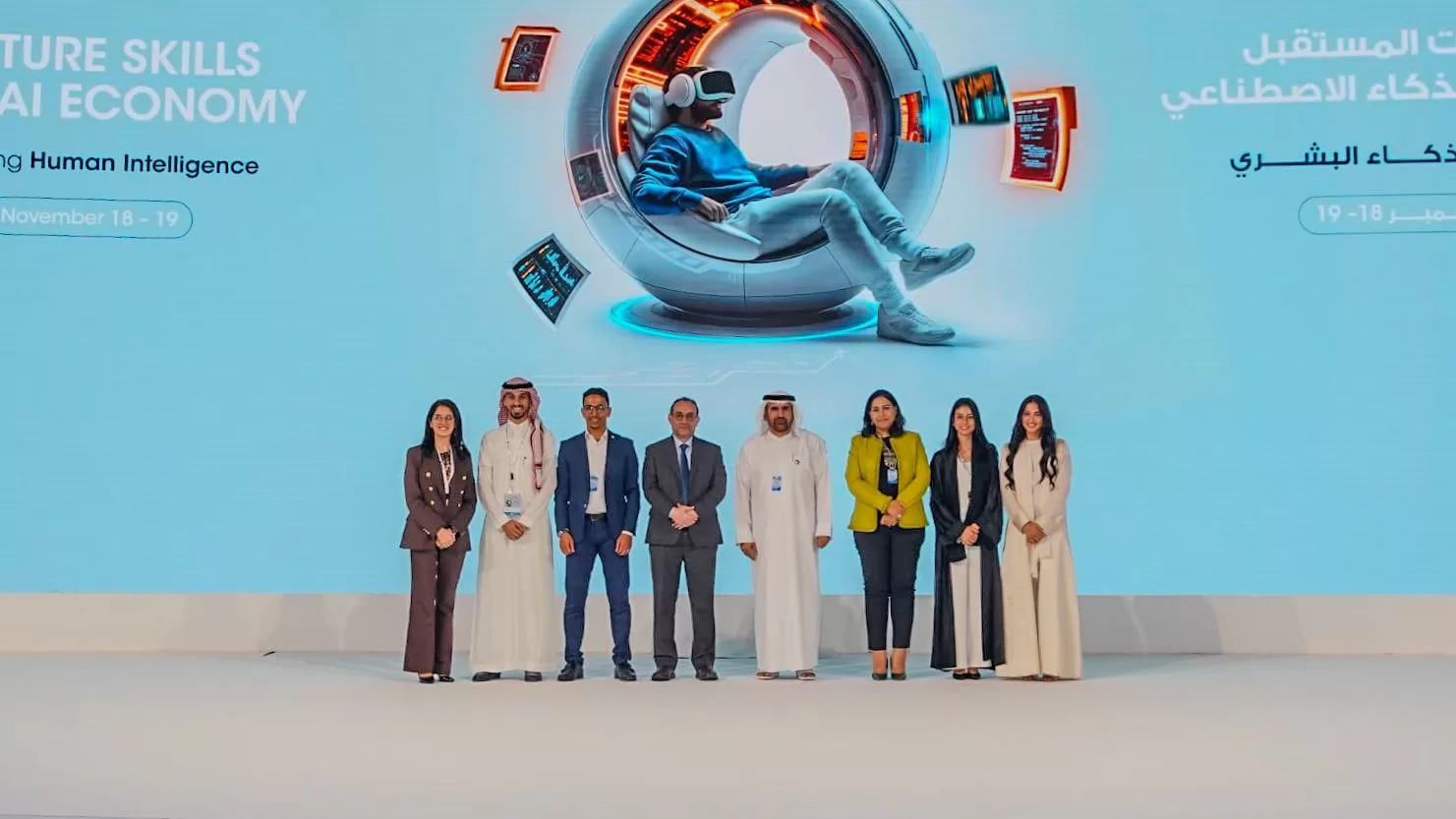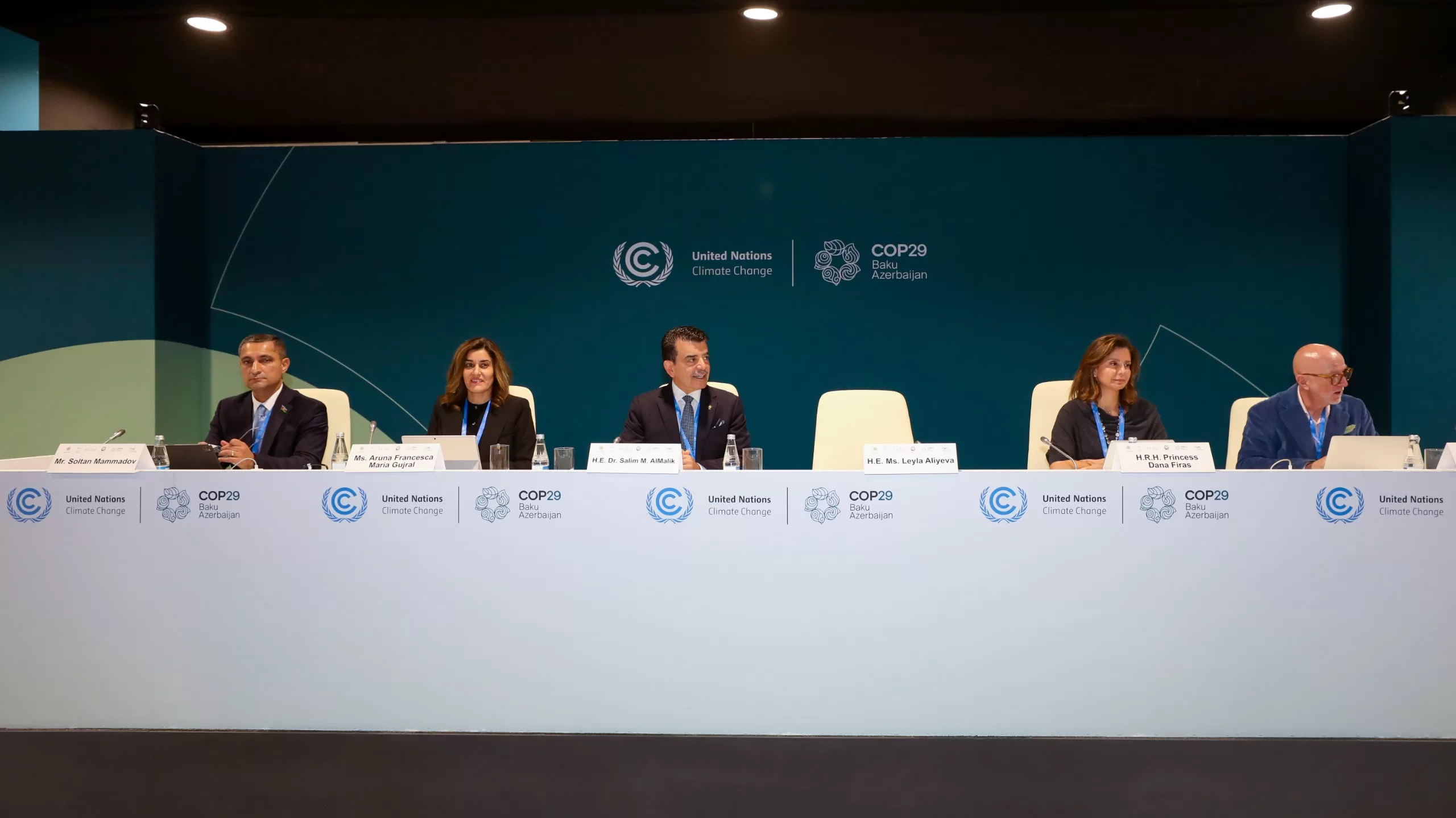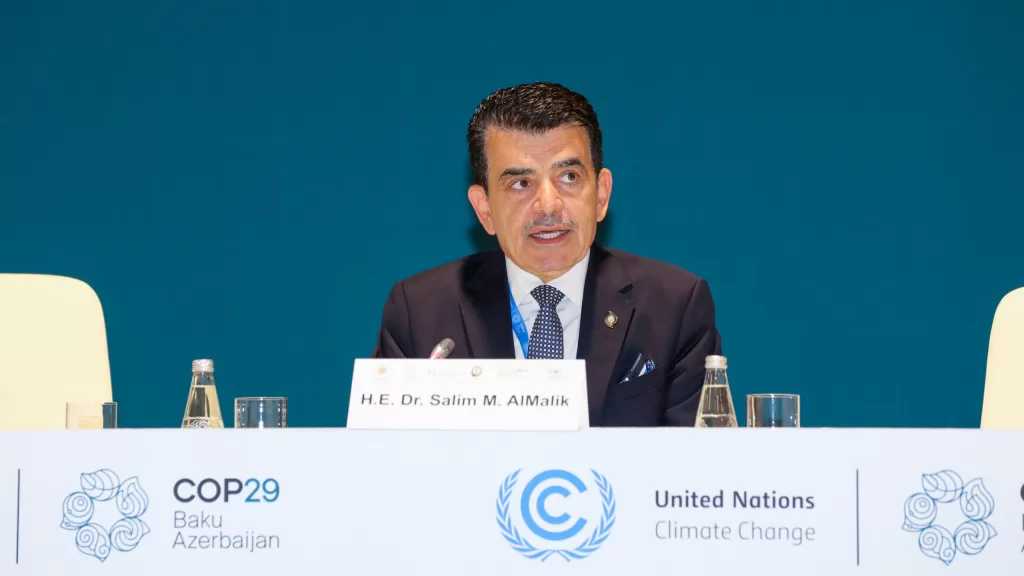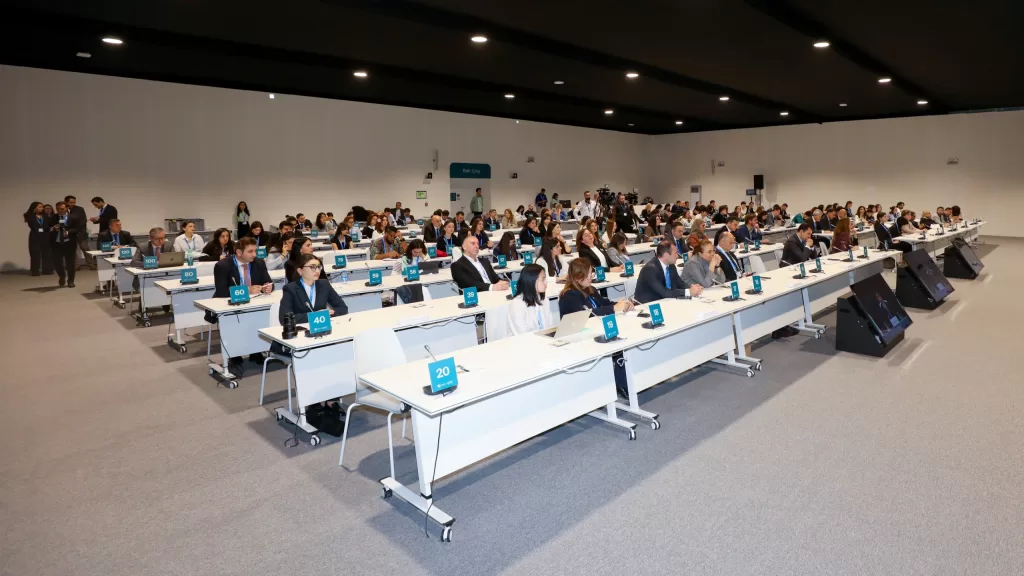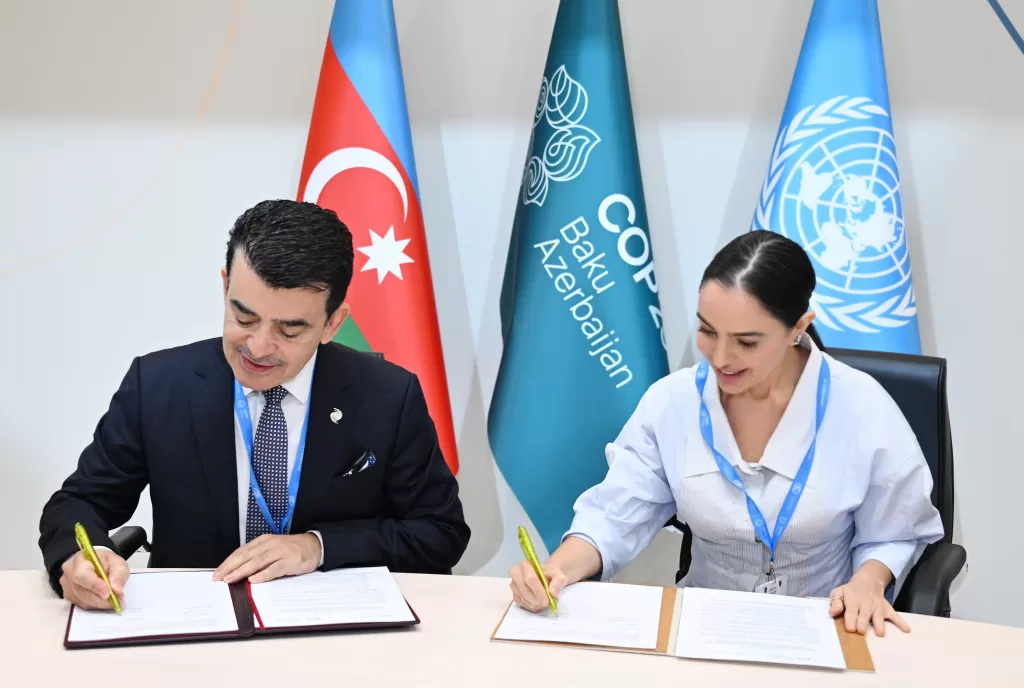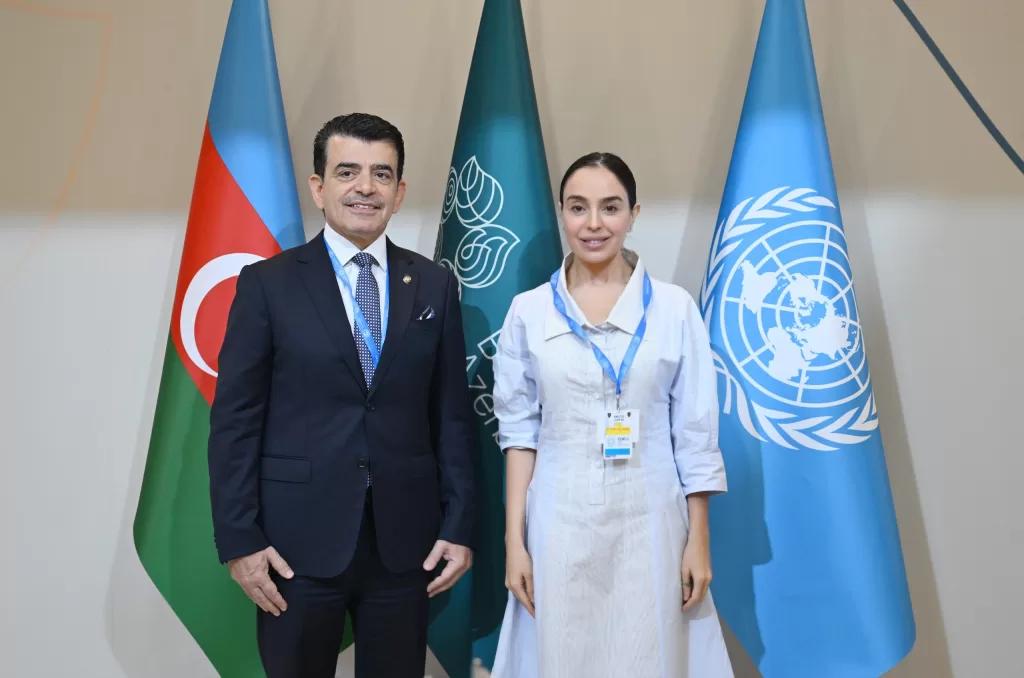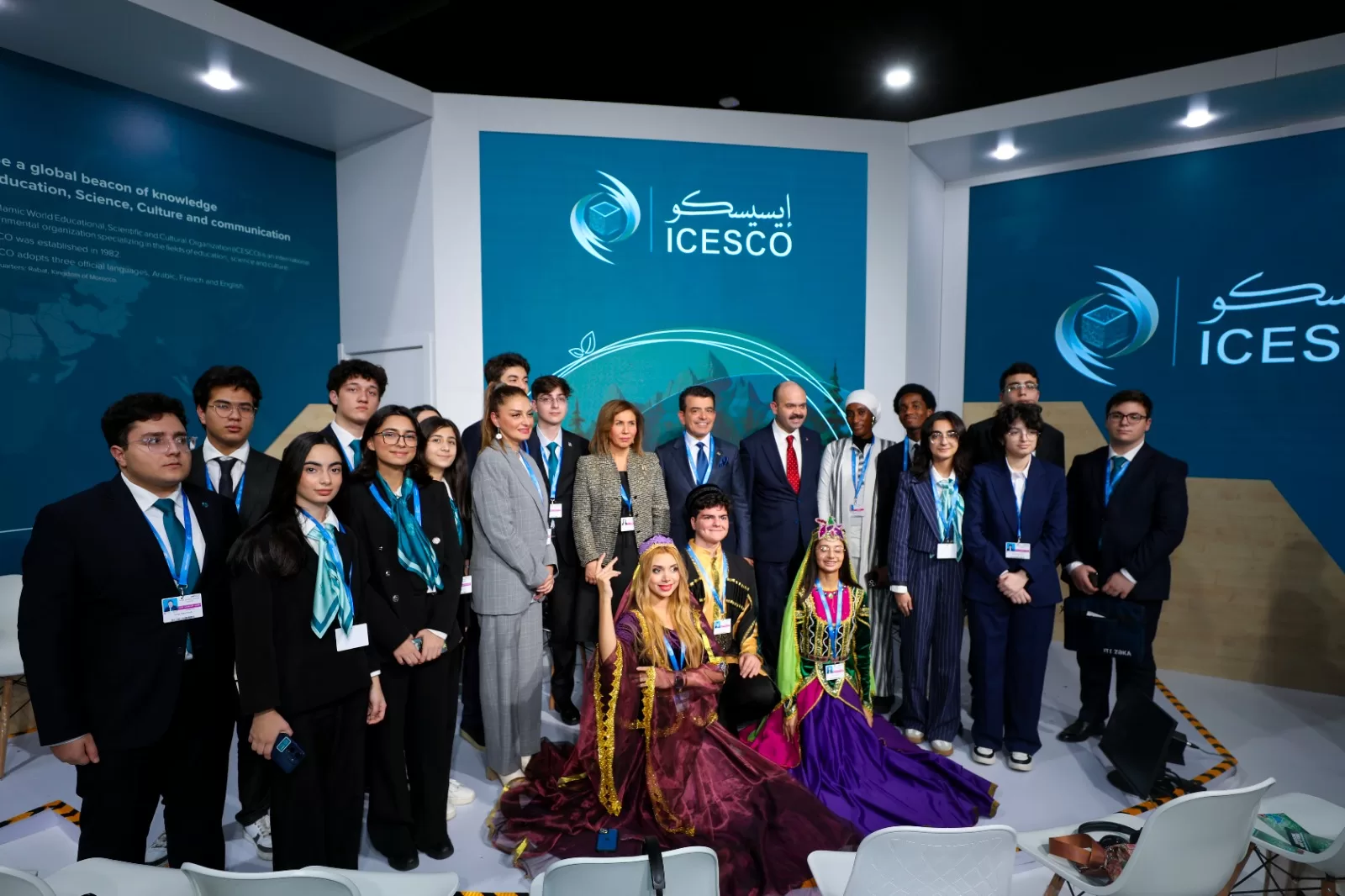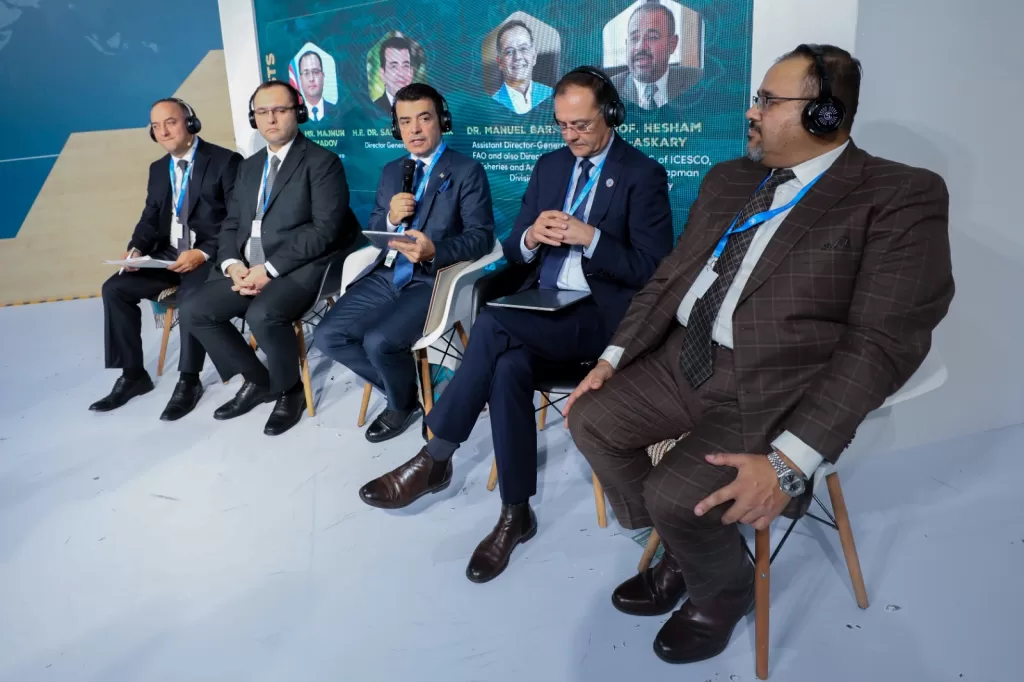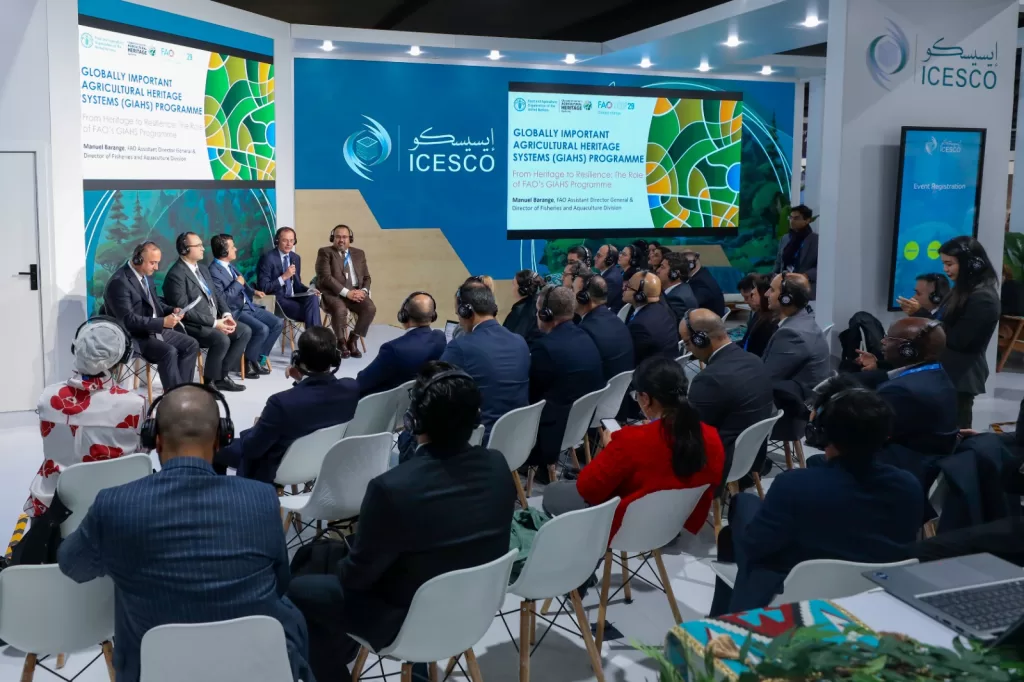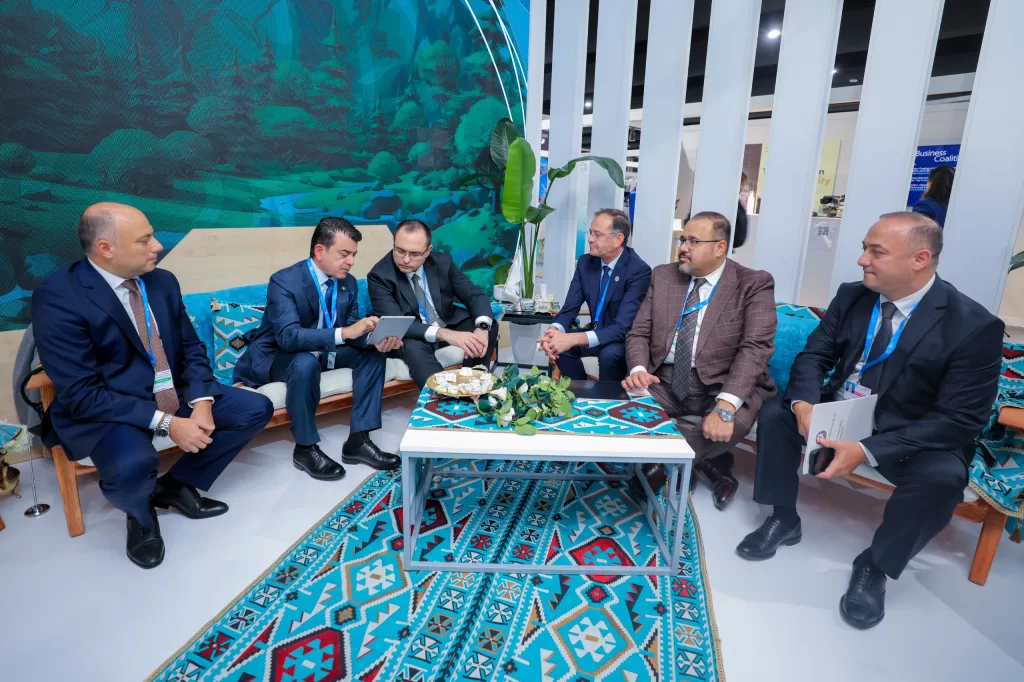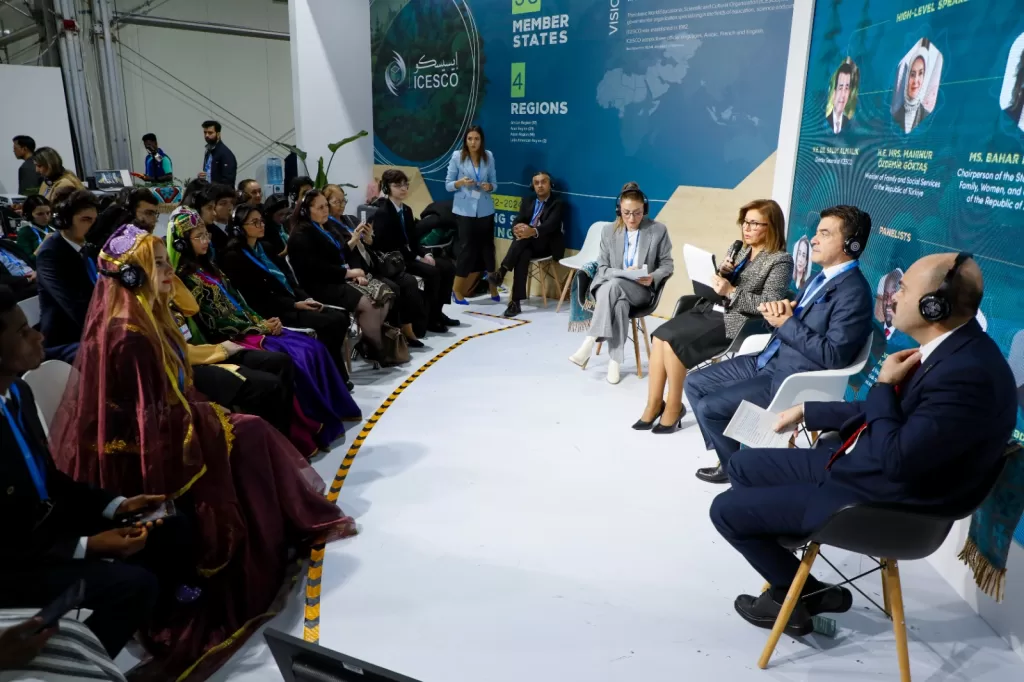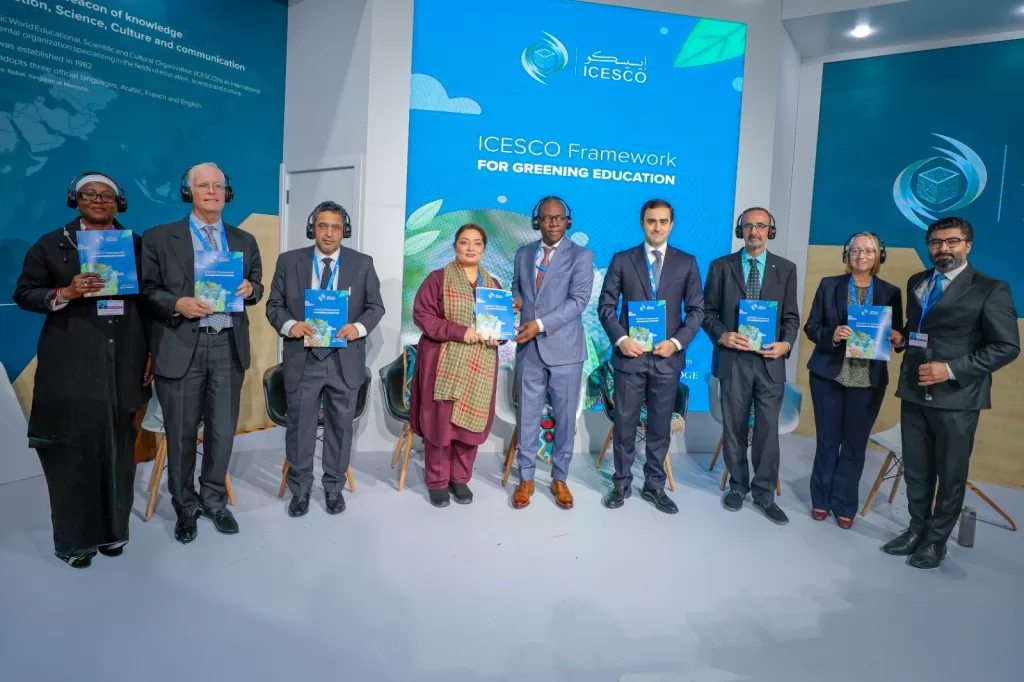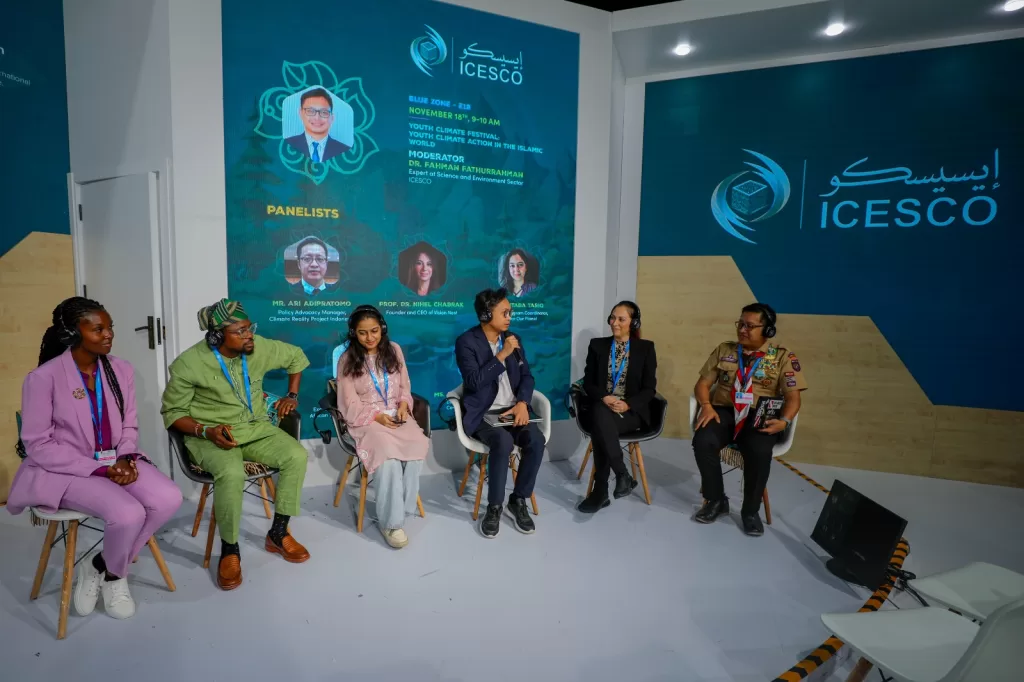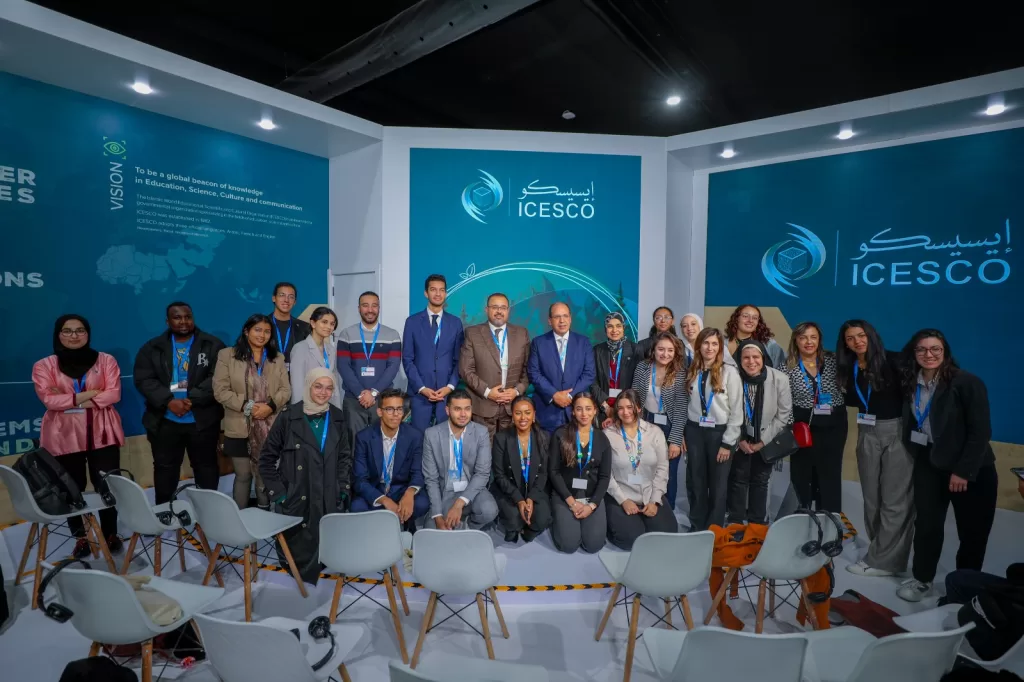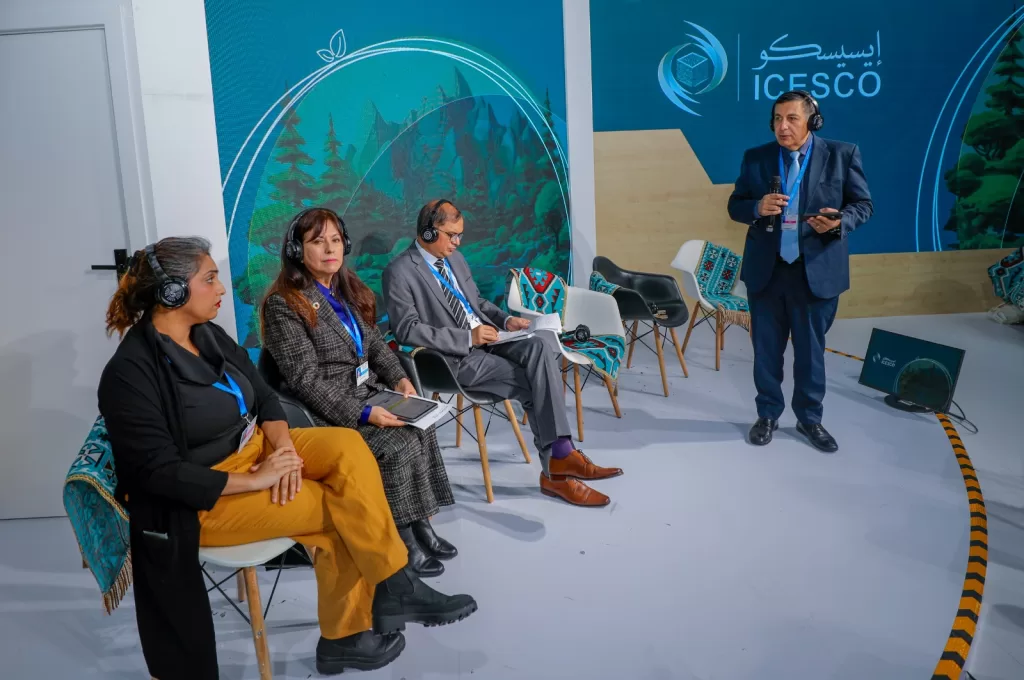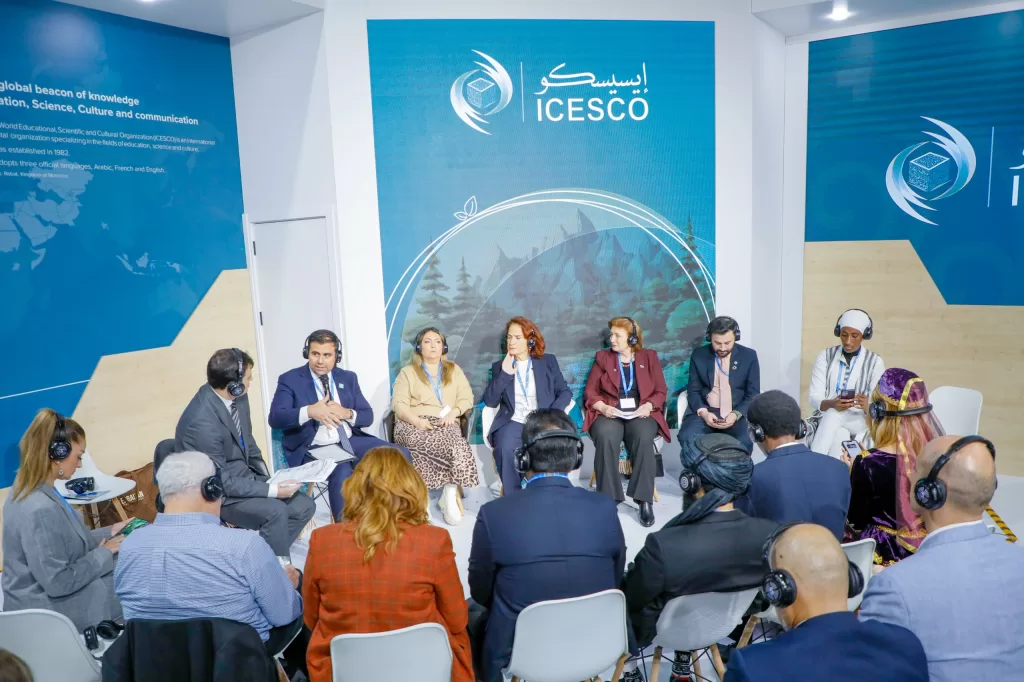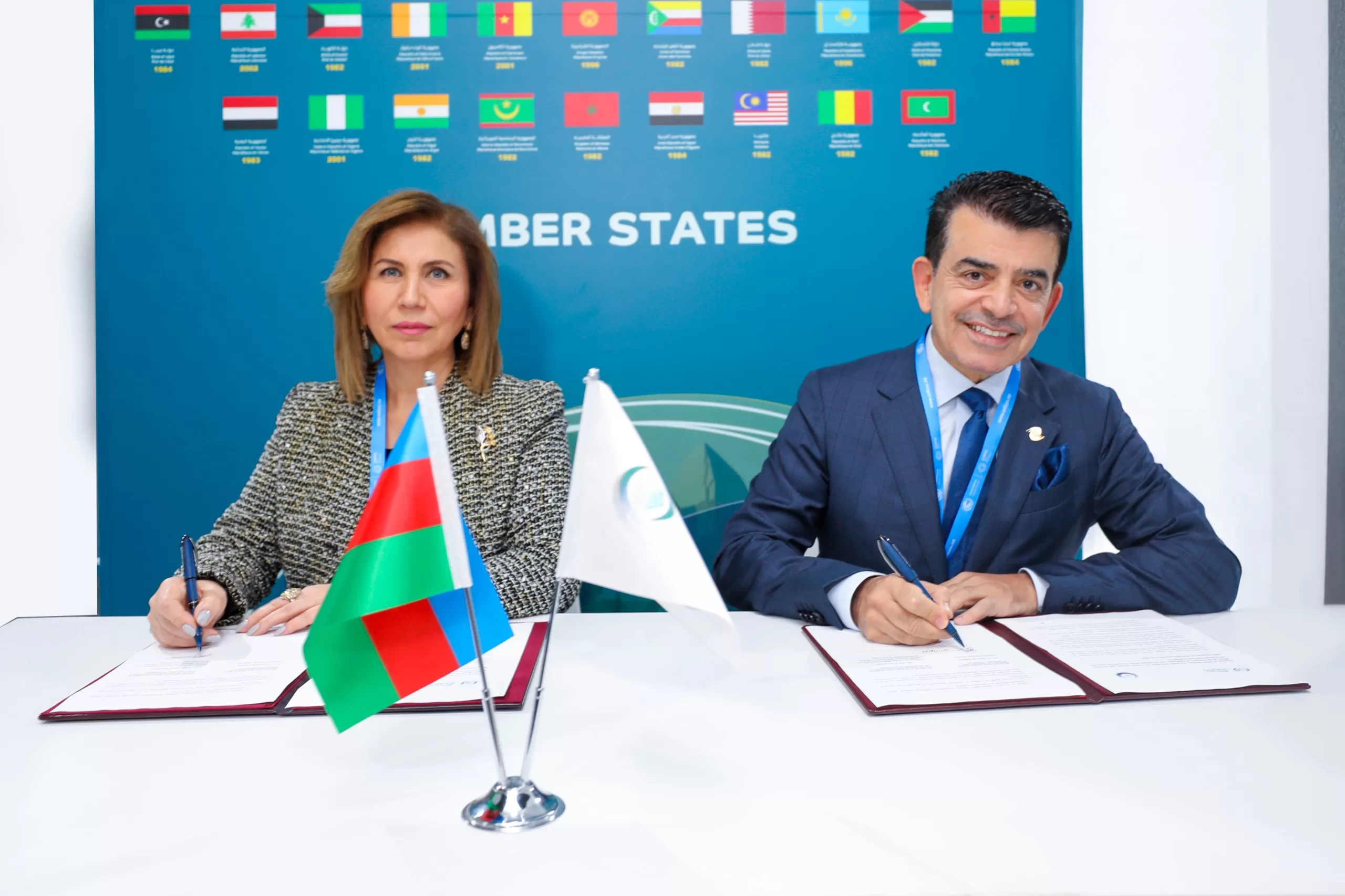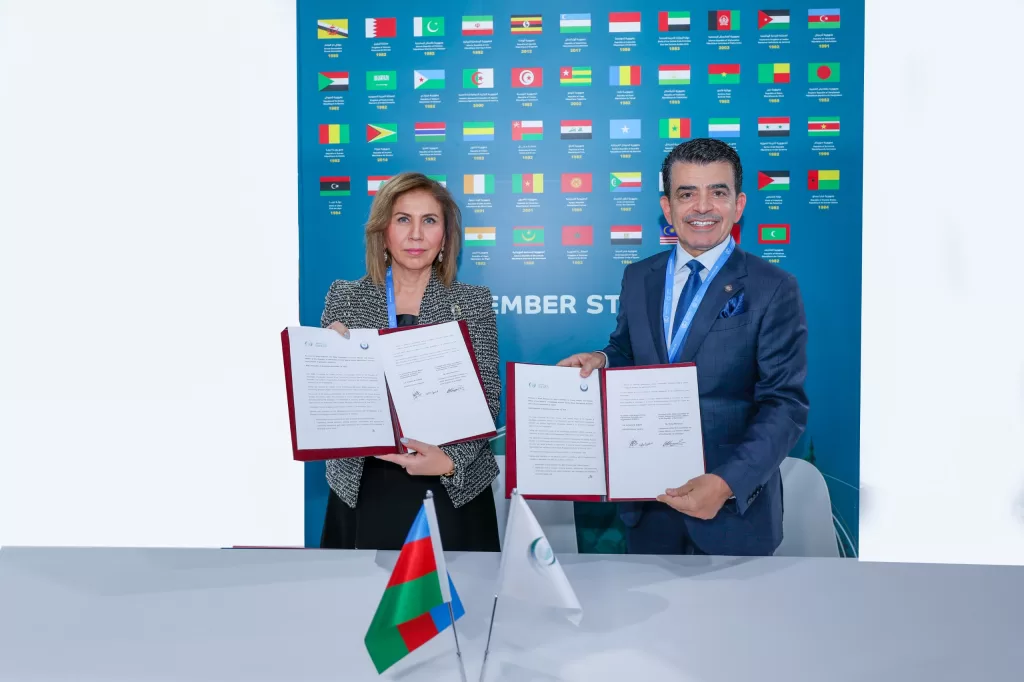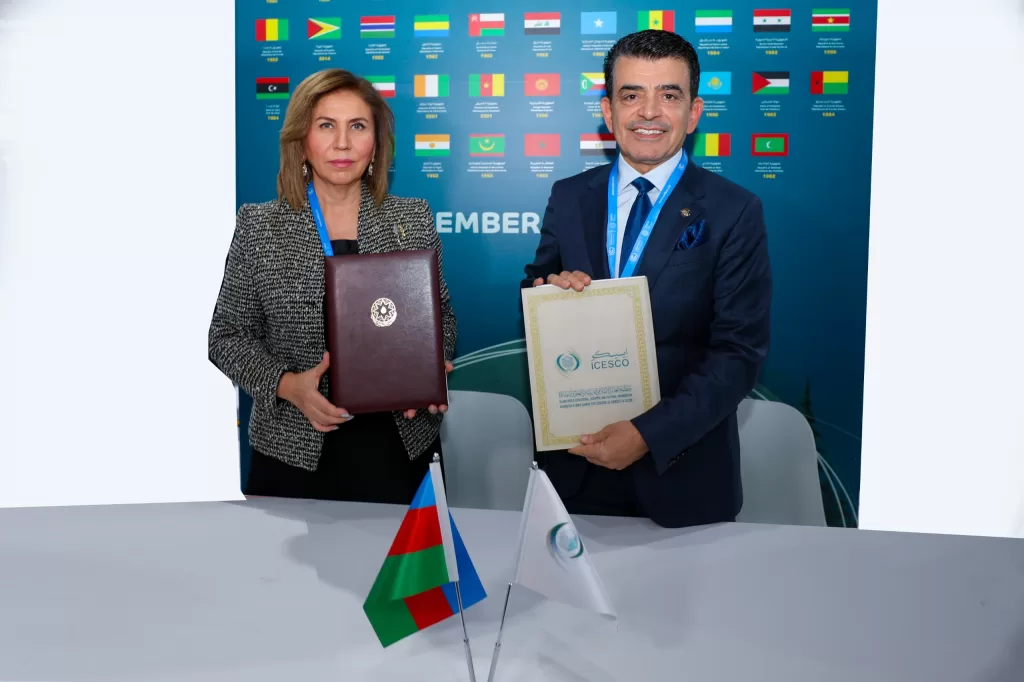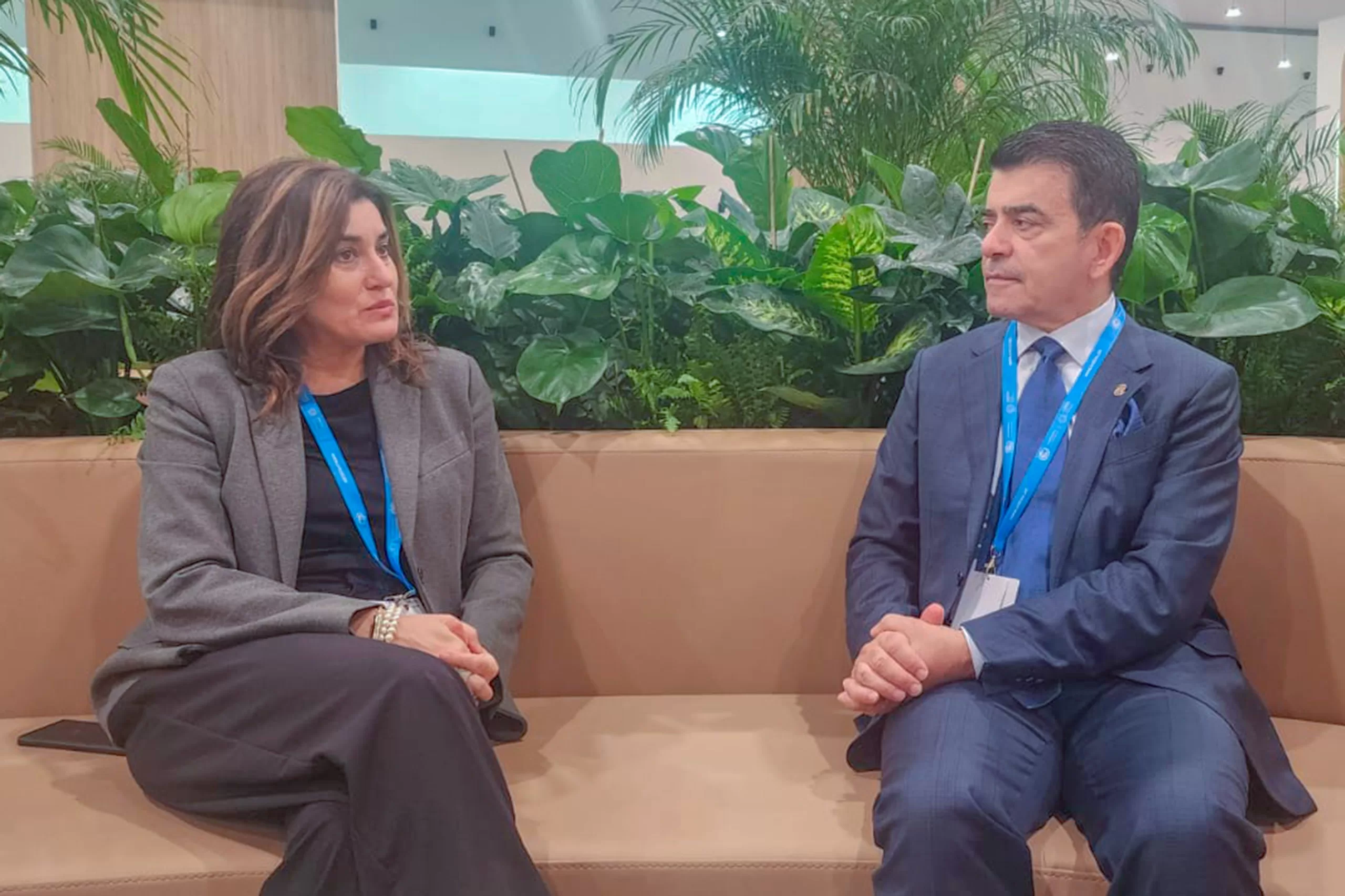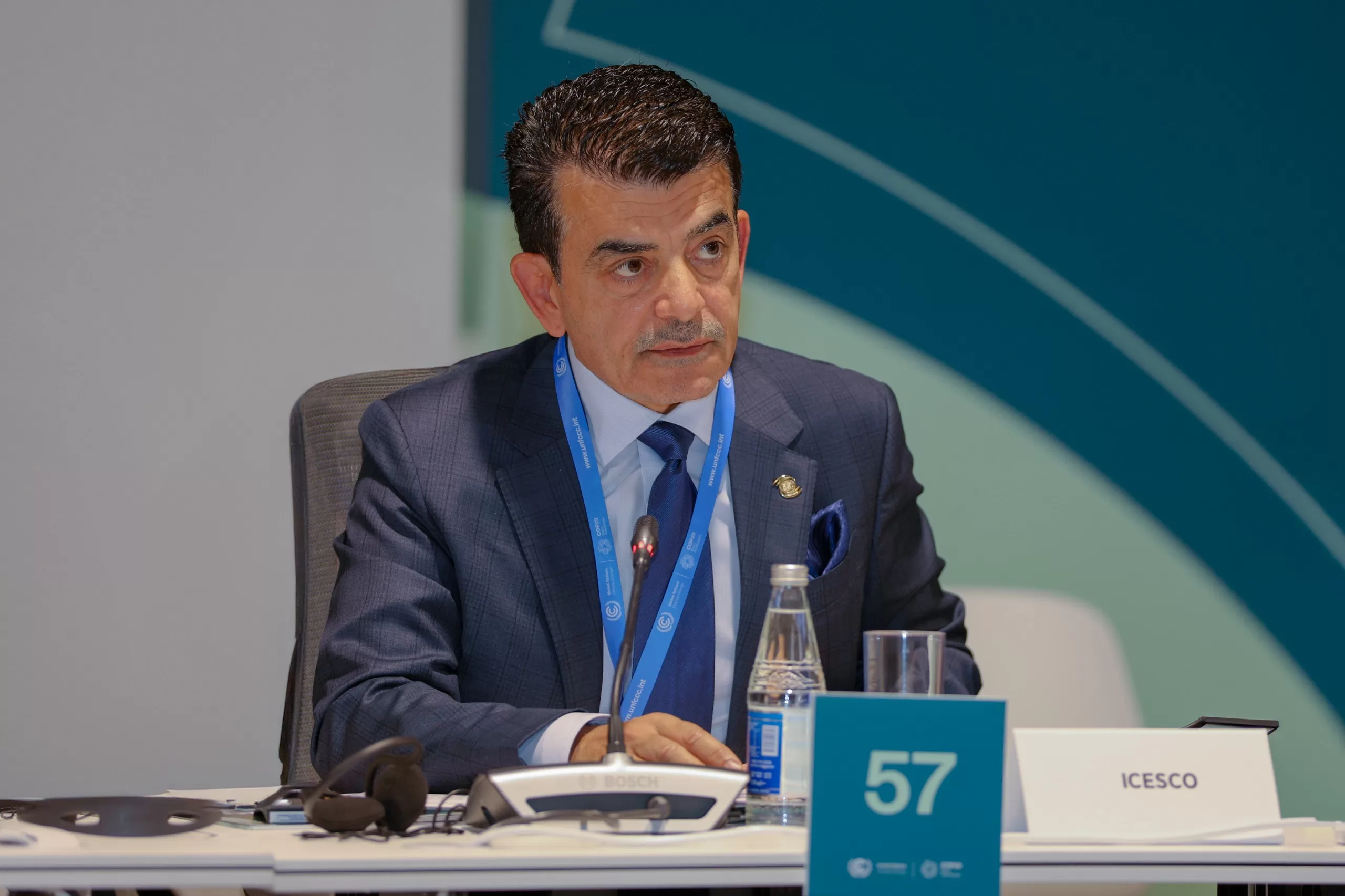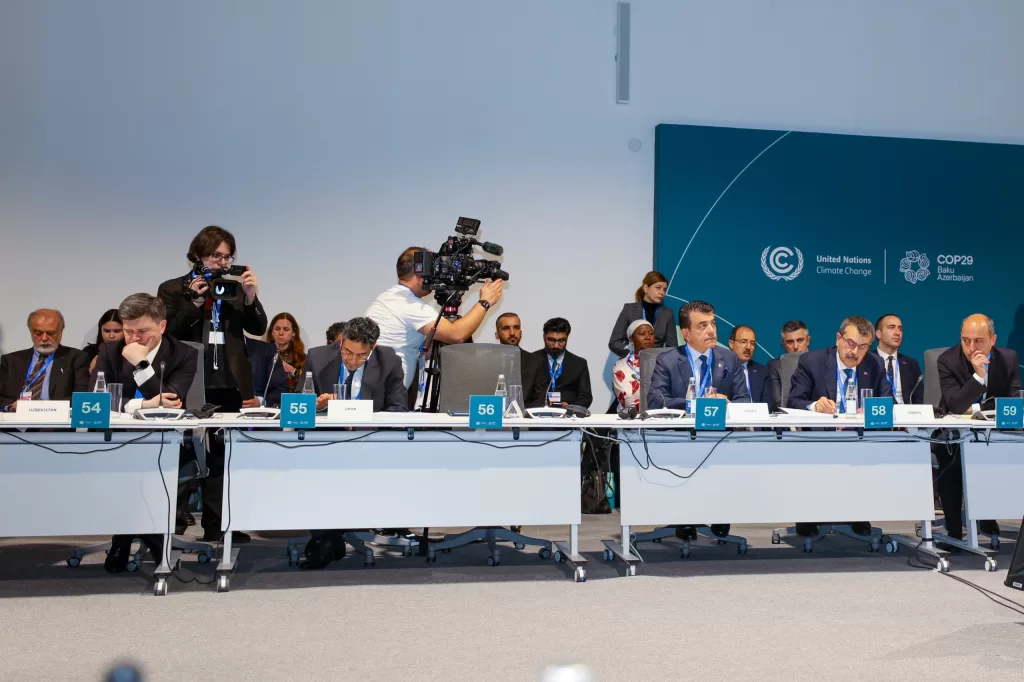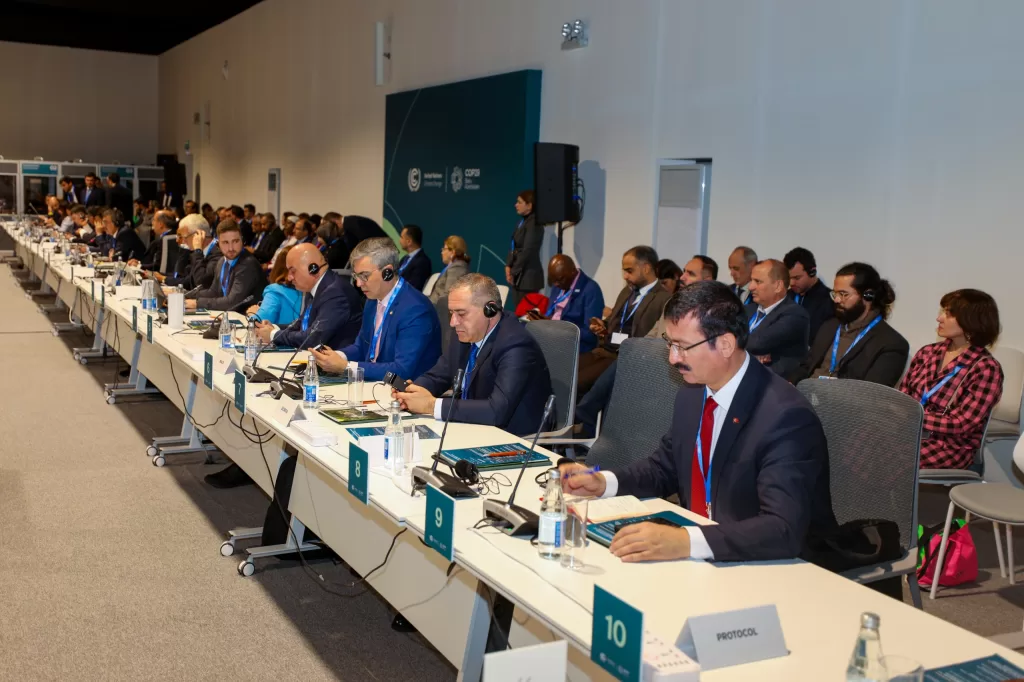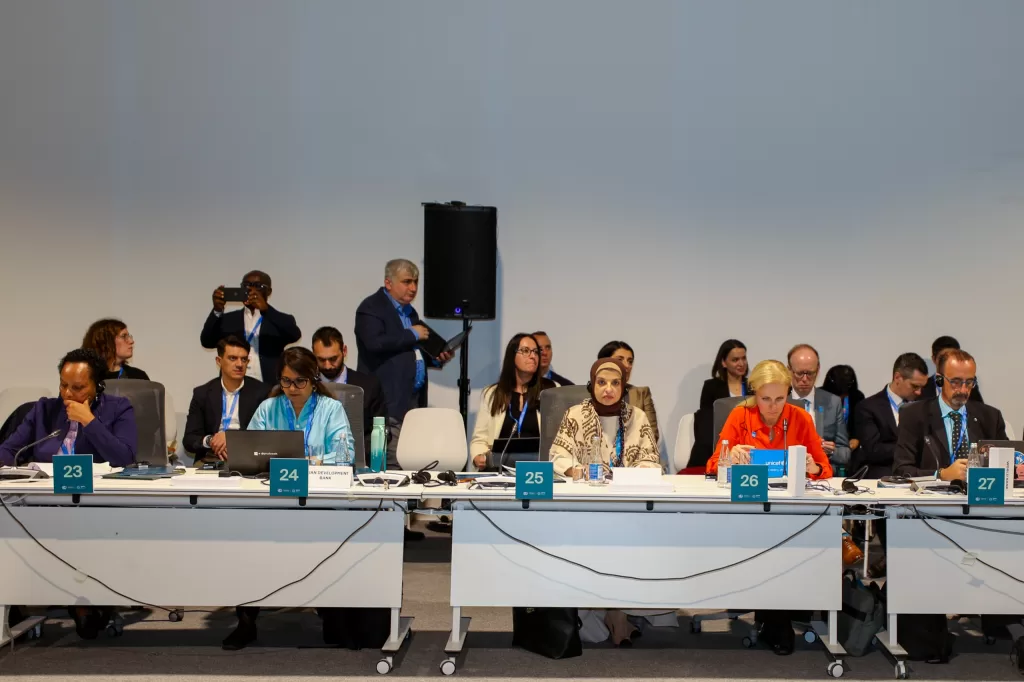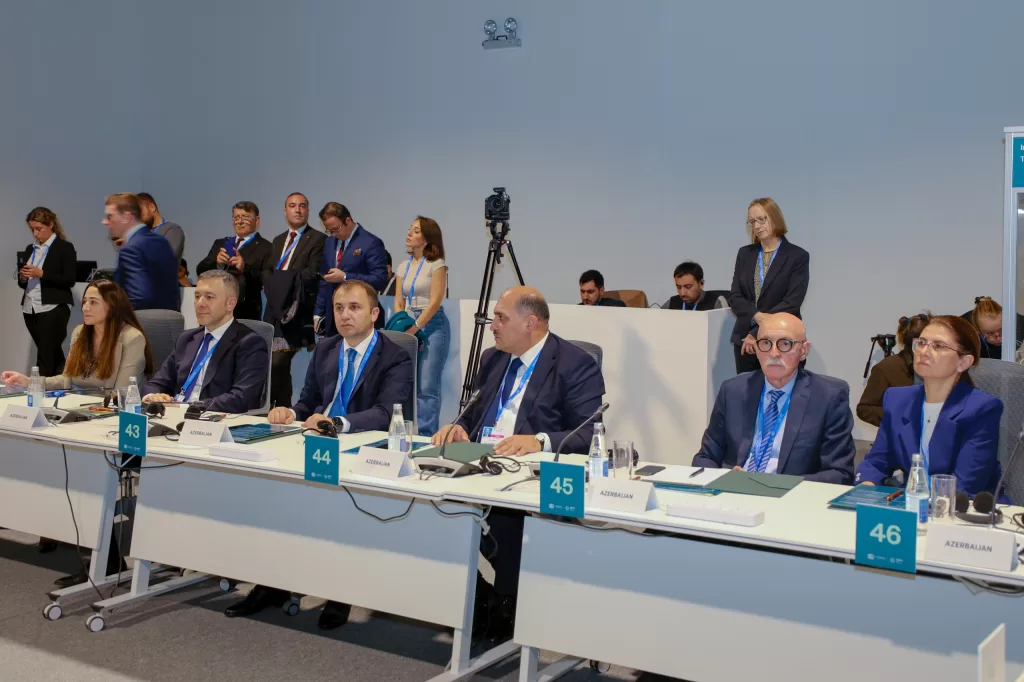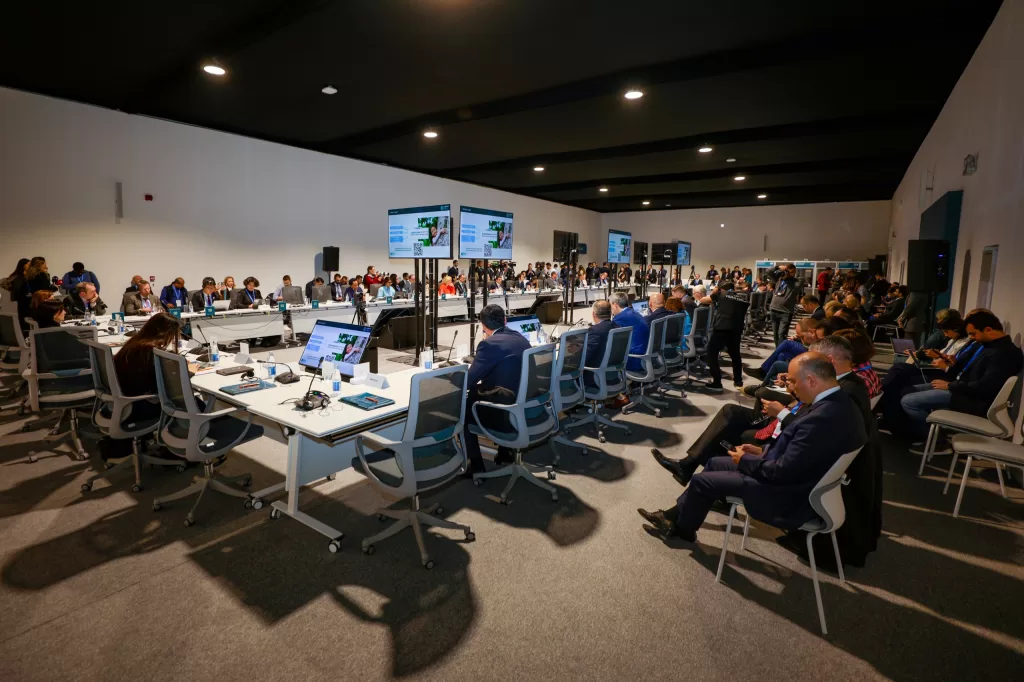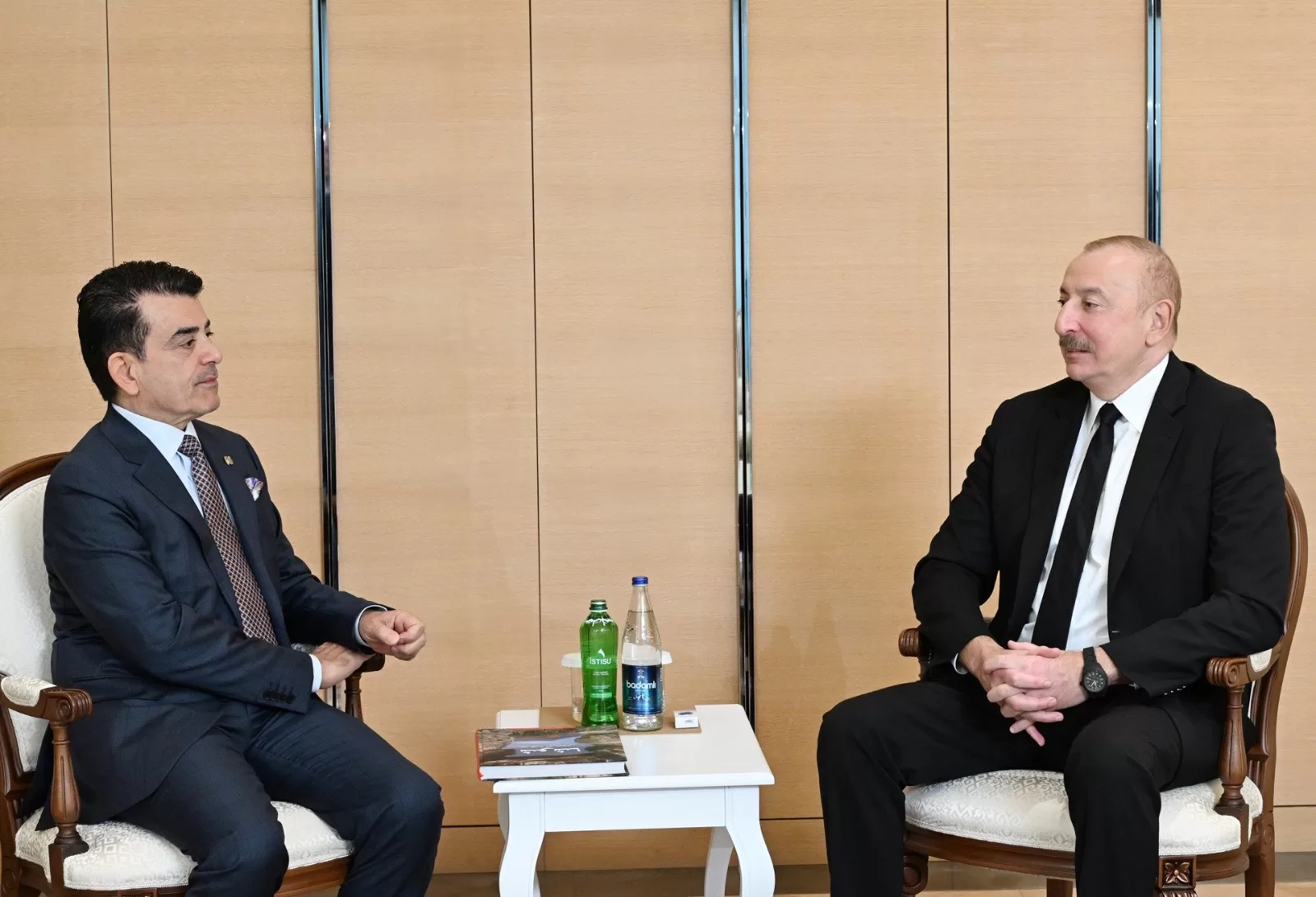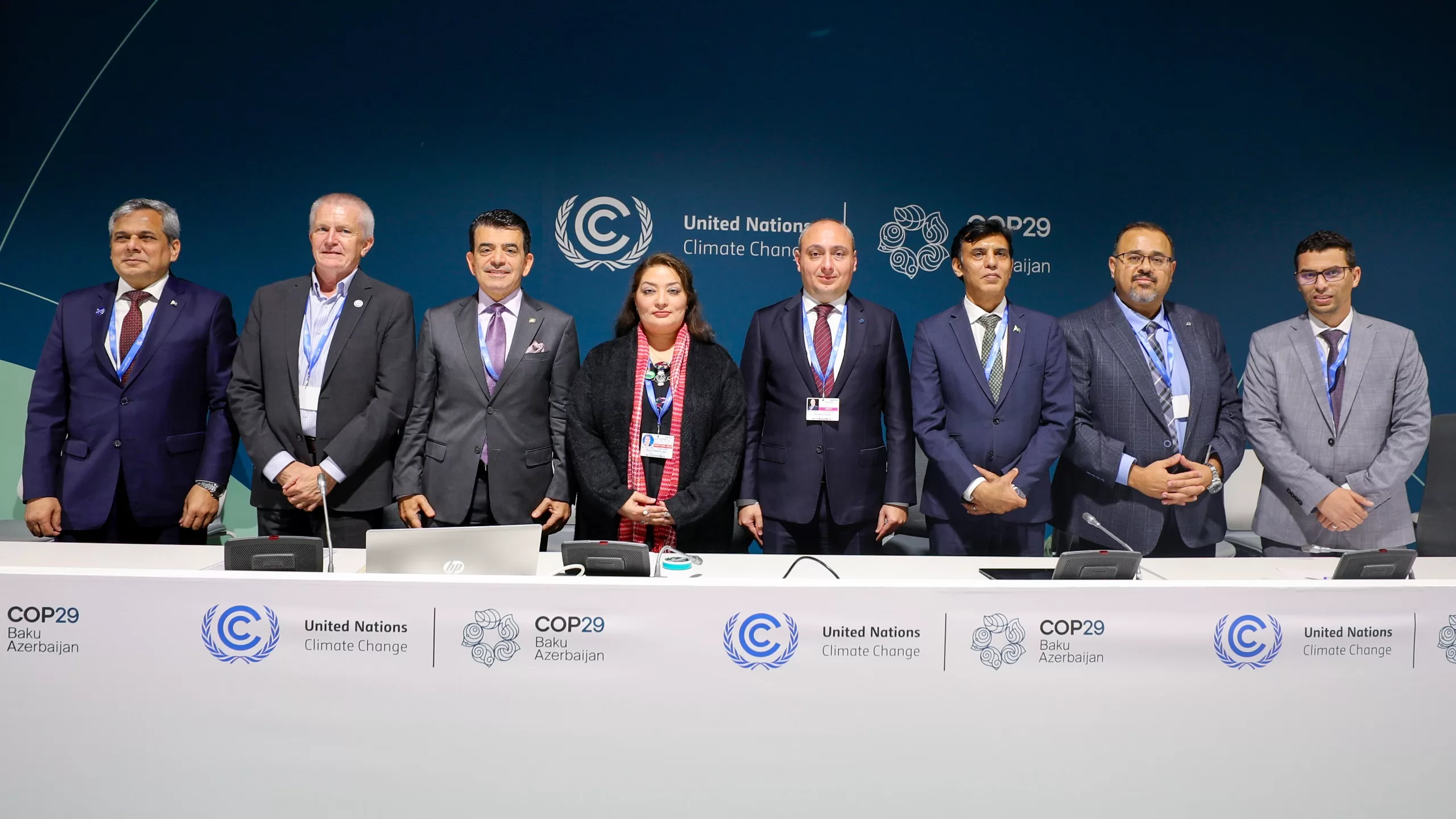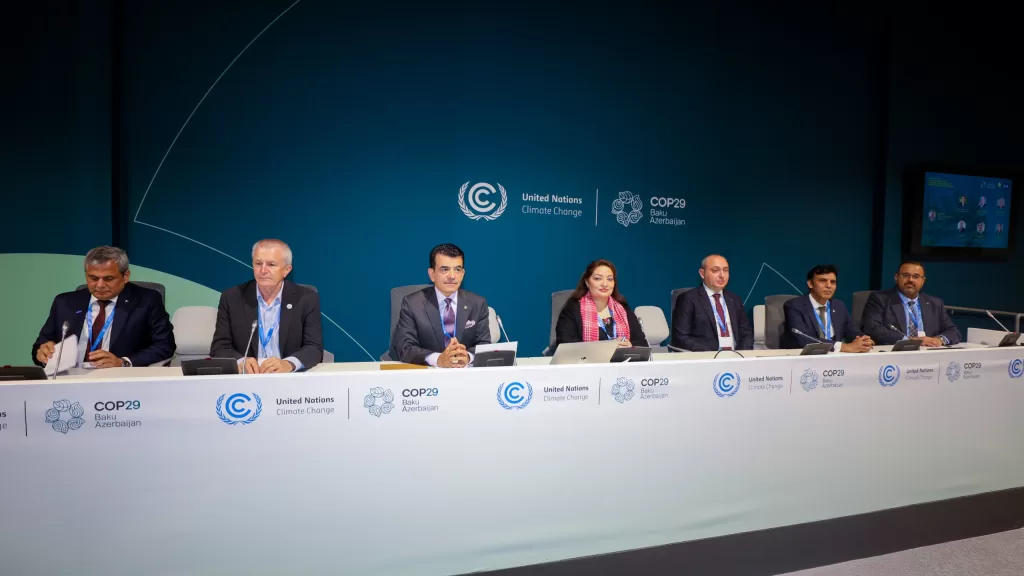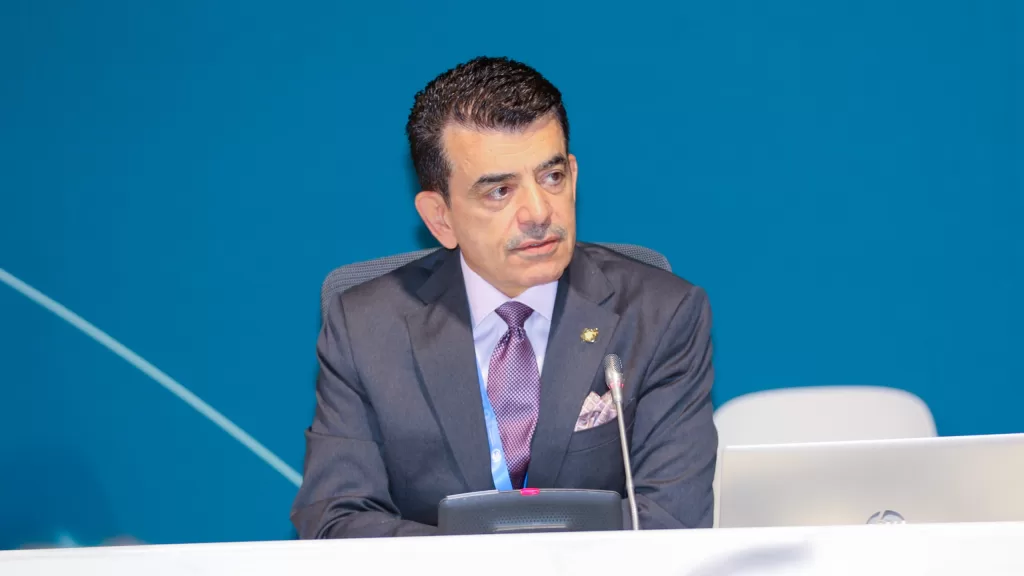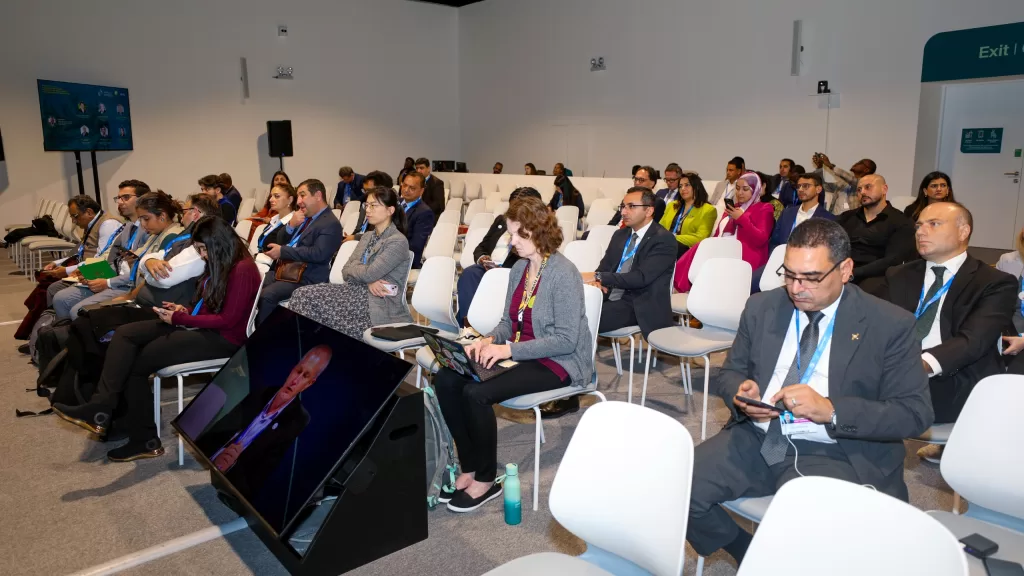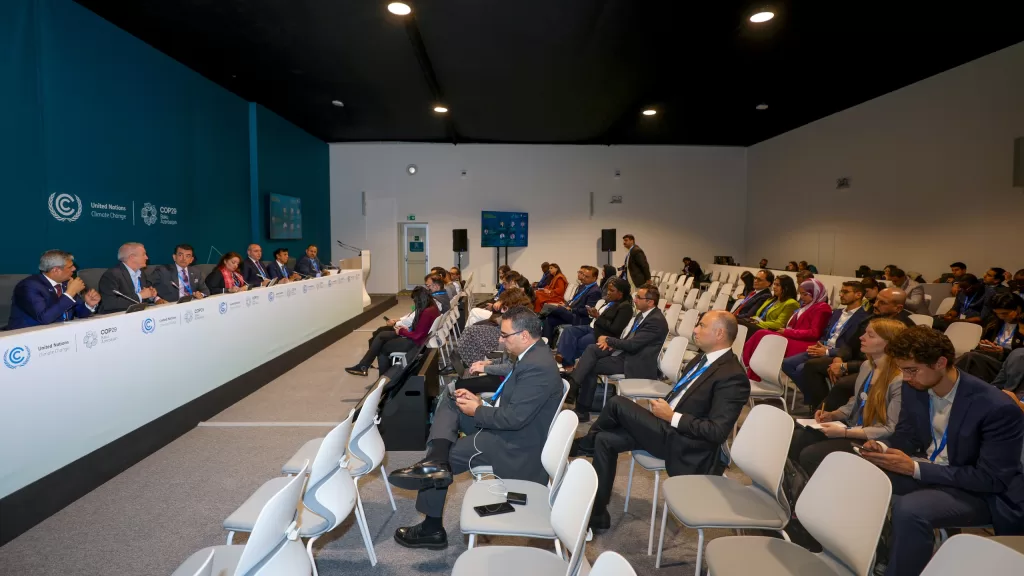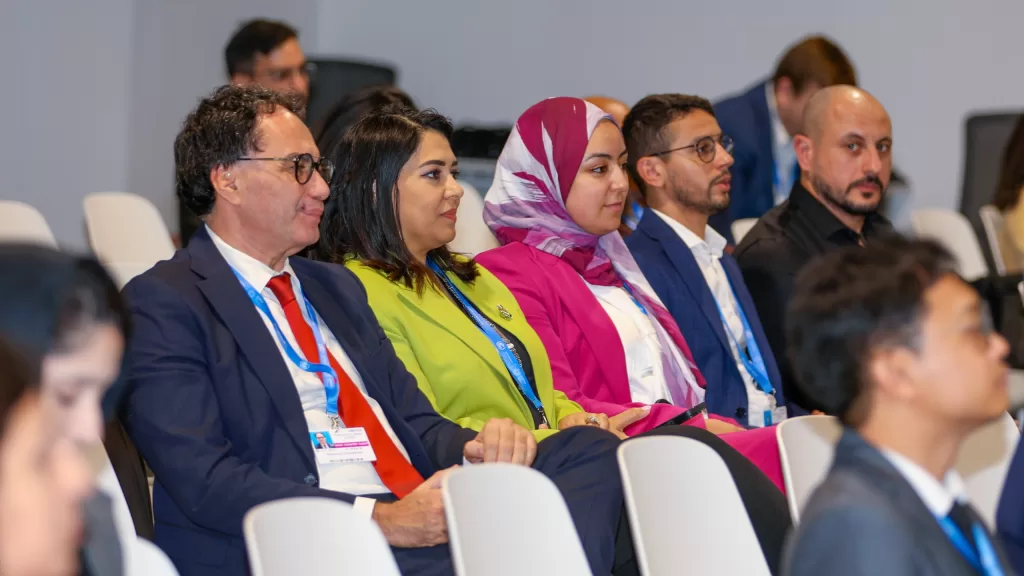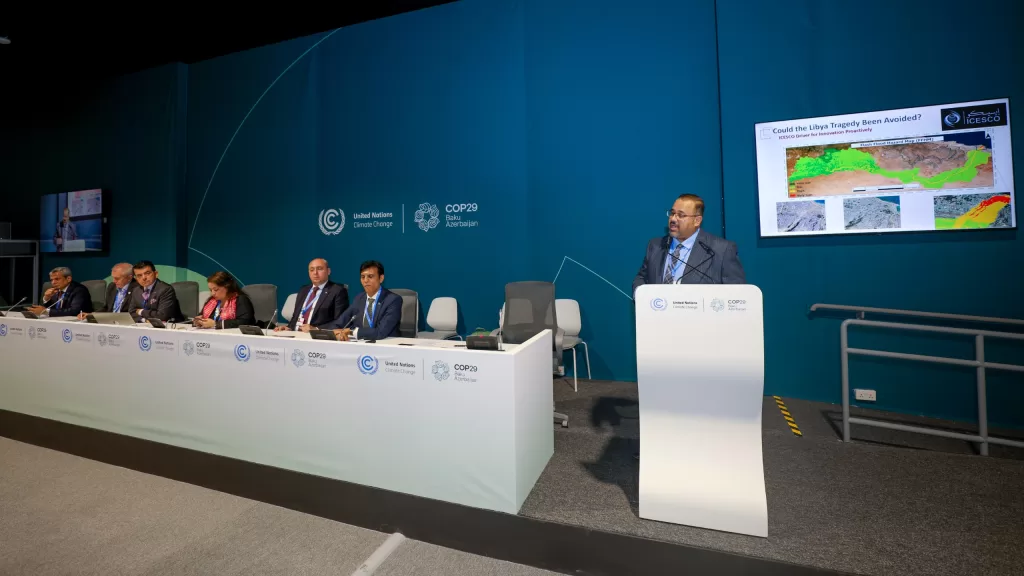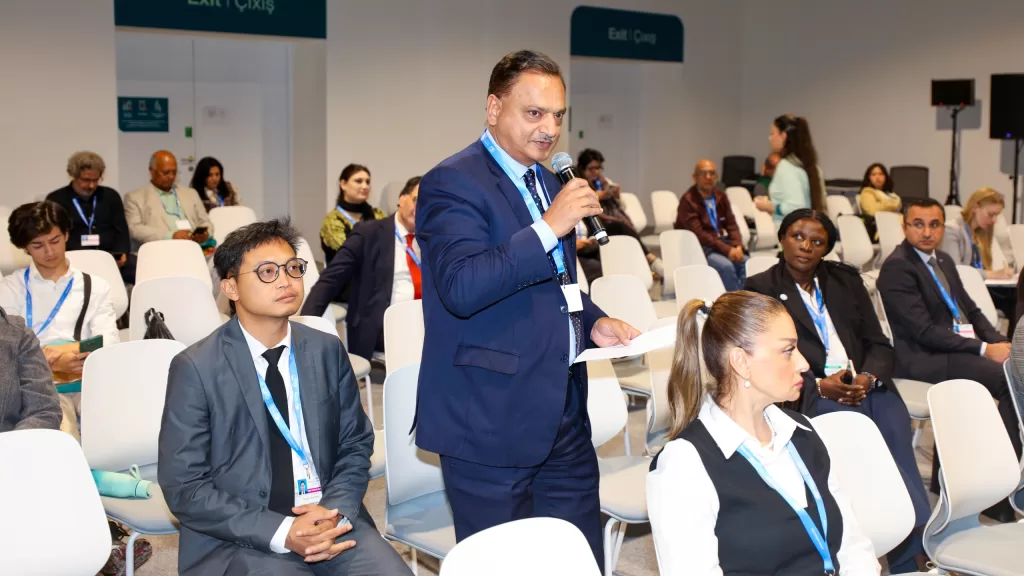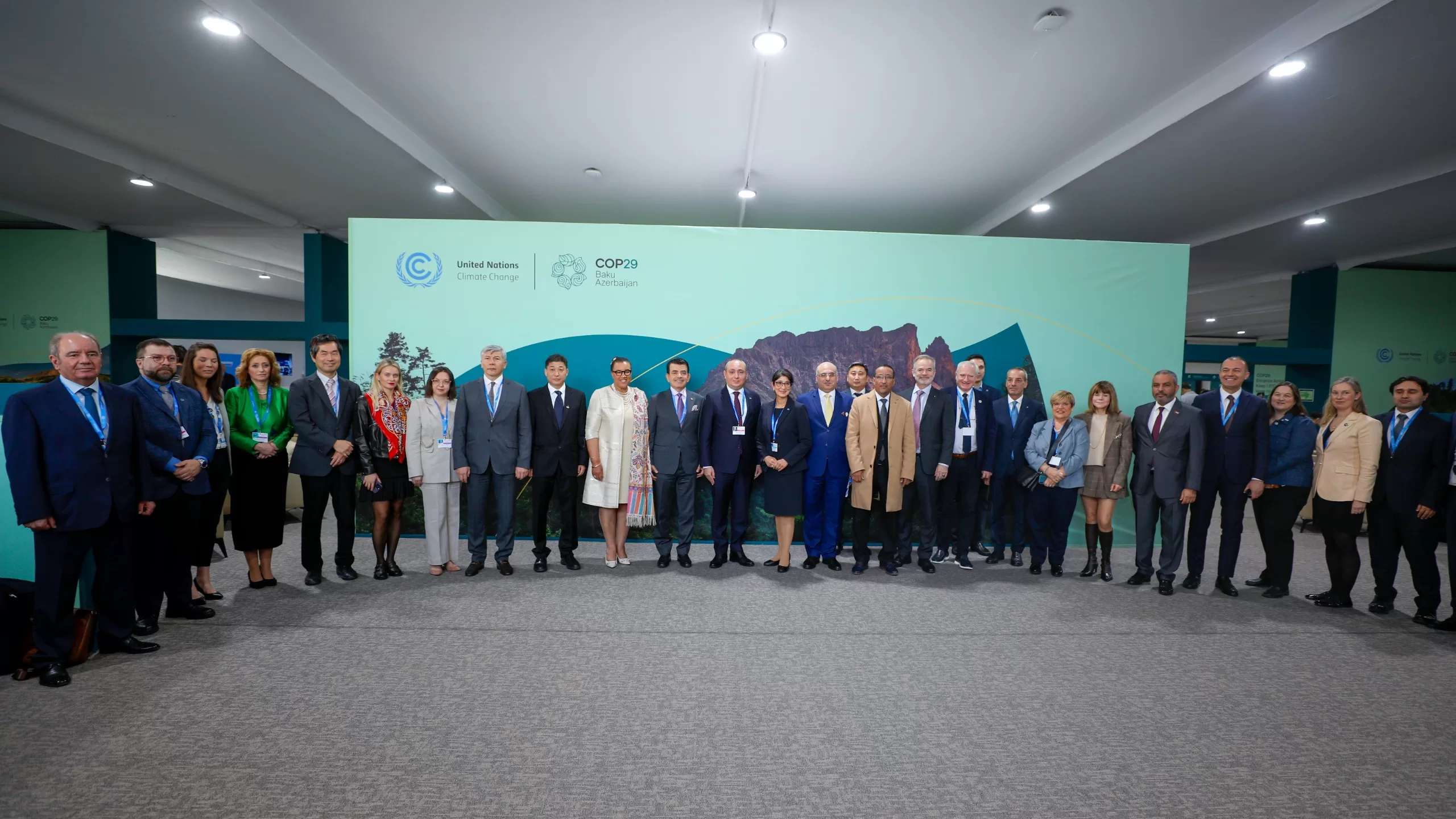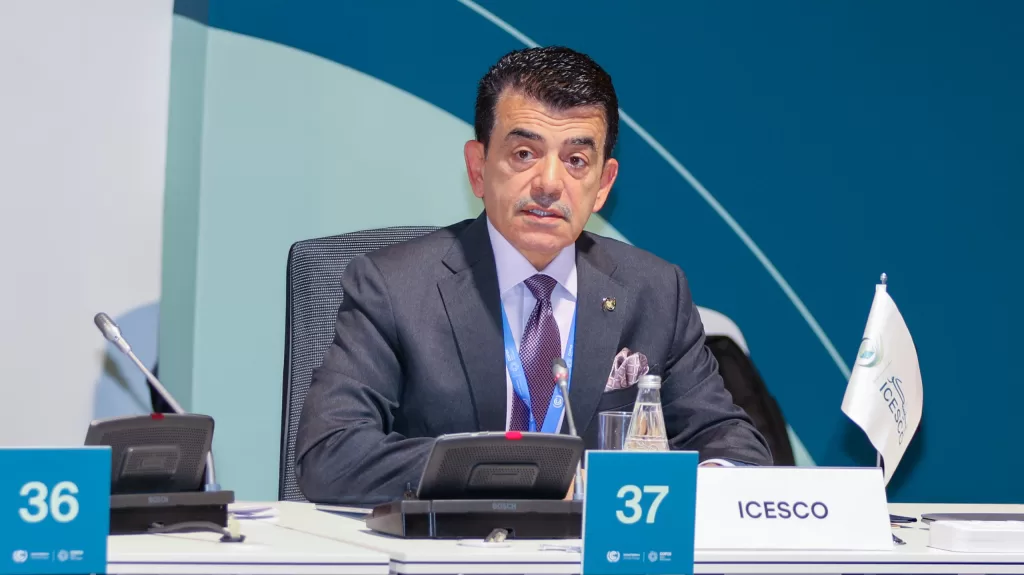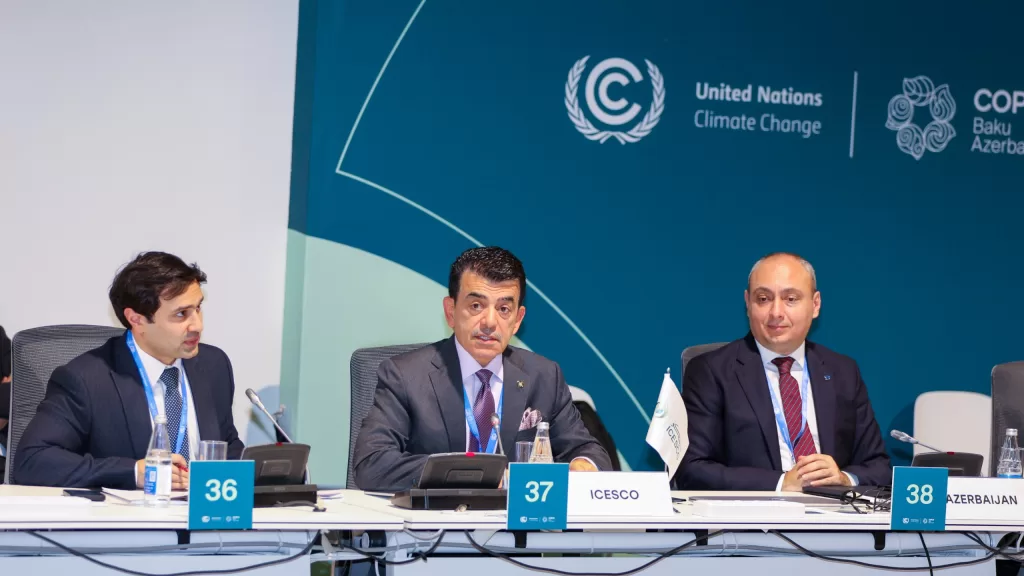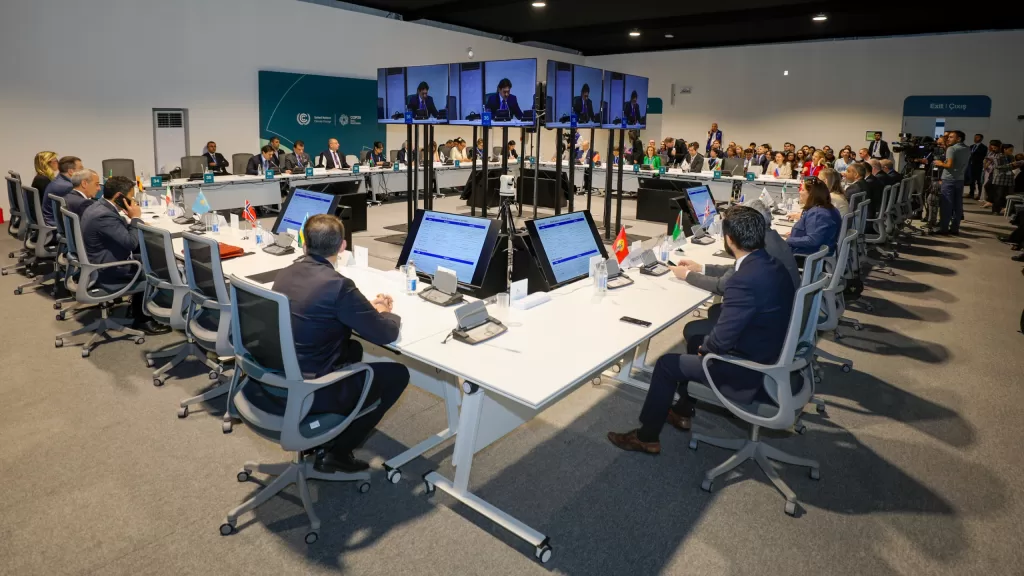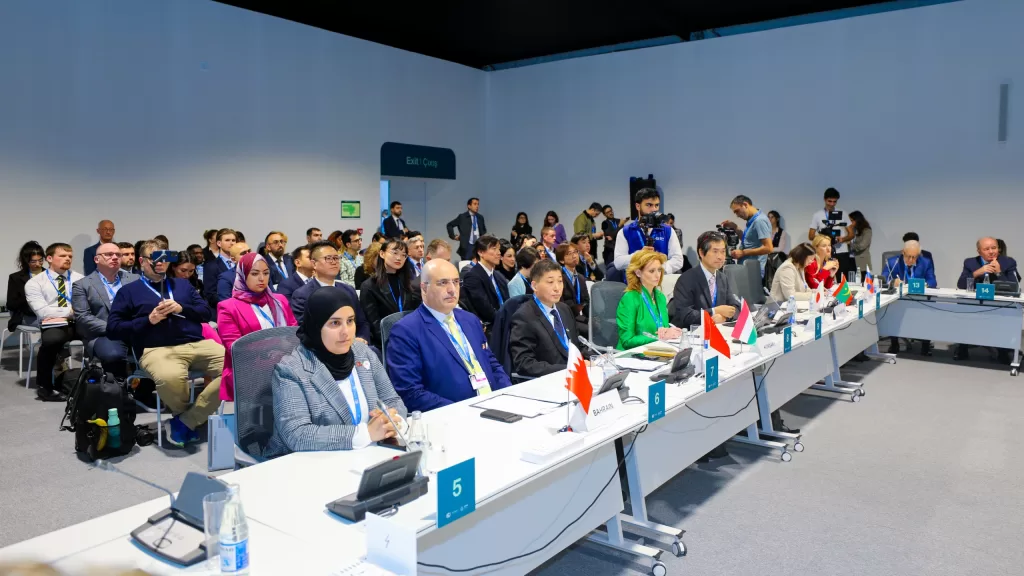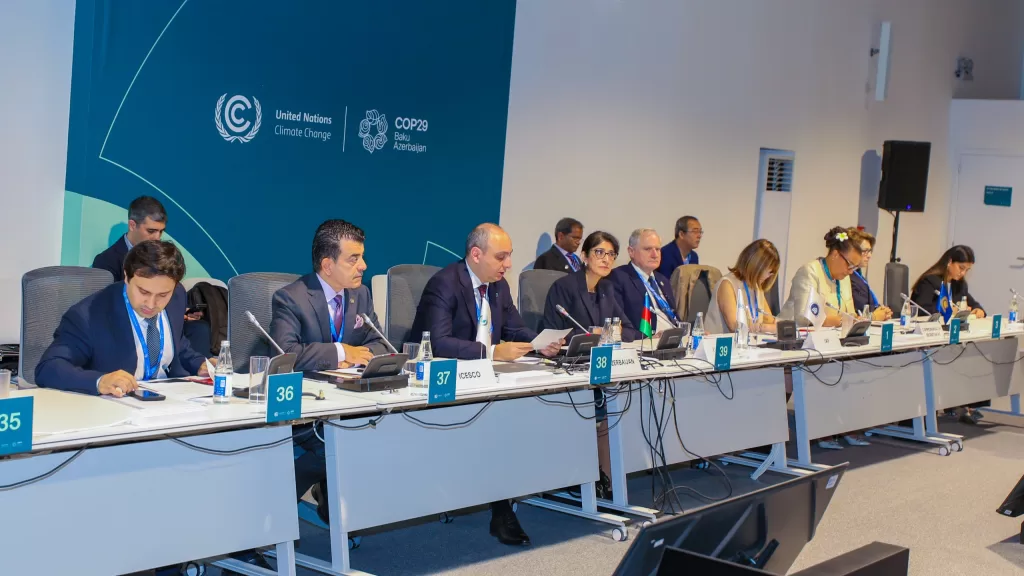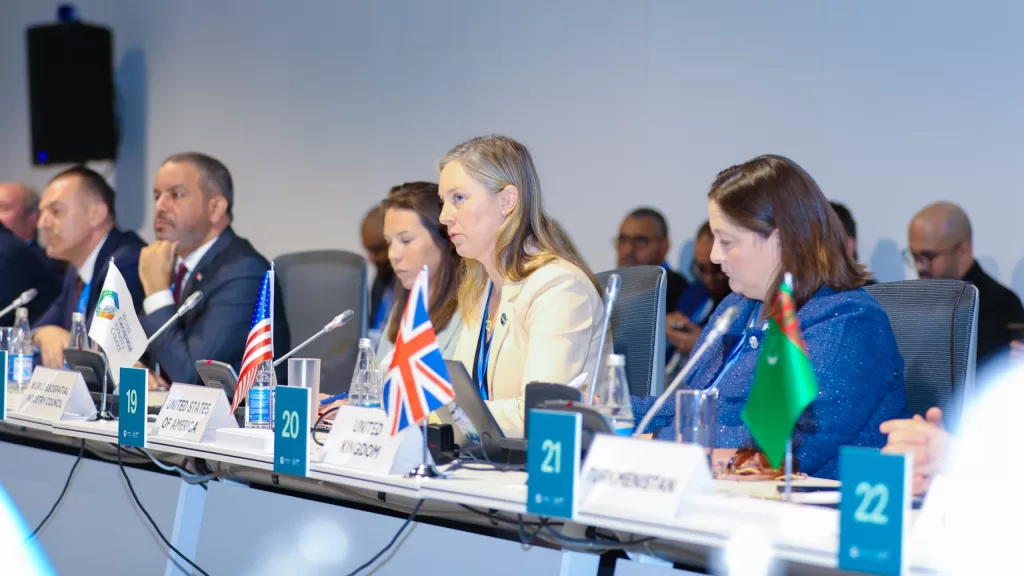A delegation from the Islamic World Educational, Scientific and Cultural Organization (ICESCO) participated in the 9th edition of the Knowledge Summit 2024, organized by the Mohammed bin Rashid Al Maktoum Knowledge Foundation on November 18–19, 2024, in Dubai, United Arab Emirates. The Summit, held under the theme “Future Skills and AI Economy,” honored ICESCO’s delegation for its outstanding participation, which included a comprehensive discussion on the importance of the Knowledge Index, panel sessions on ICESCO’s collaborative learning acceleration, and meetings with prominent Summit participants.
ICESCO’s delegation was led by Dr. Salim Al Habsi, Head of the General Secretariat of National Commissions and Conferences, and included Dr. Nidal Abu Zuhri, Director of Administrative Operations, Dr. Sally Mabrouk, Head of the Office of Director-General, along with other staff members.

The Delegation took part in extensive discussions on the importance of the Global Knowledge Index. The meeting attended by Dr. Jamal Bin Huwaireb, CEO of the Mohammed bin Rashid Al Maktoum Knowledge Foundation, Dr. Hany Torky, Chief Technical Advisor and Project Manager, Knowledge Project, UNDP, and several National Commission secretaries and representatives of ICESCO Member States. Dr. Jamal Bin Huwaireb emphasized ICESCO’s strategic partnership in advancing knowledge-based efforts and its role in supporting the Member States to improve their performance in international indices. Additionally, Dr. Salim Al Habsi highlighted ICESCO’s initiatives to strengthen communication and assist Member States in enhancing knowledge efficiency. Furthermore, representatives of National Commissions shared their experiences in collecting data for the Global Knowledge Index and the main challenges they faced.
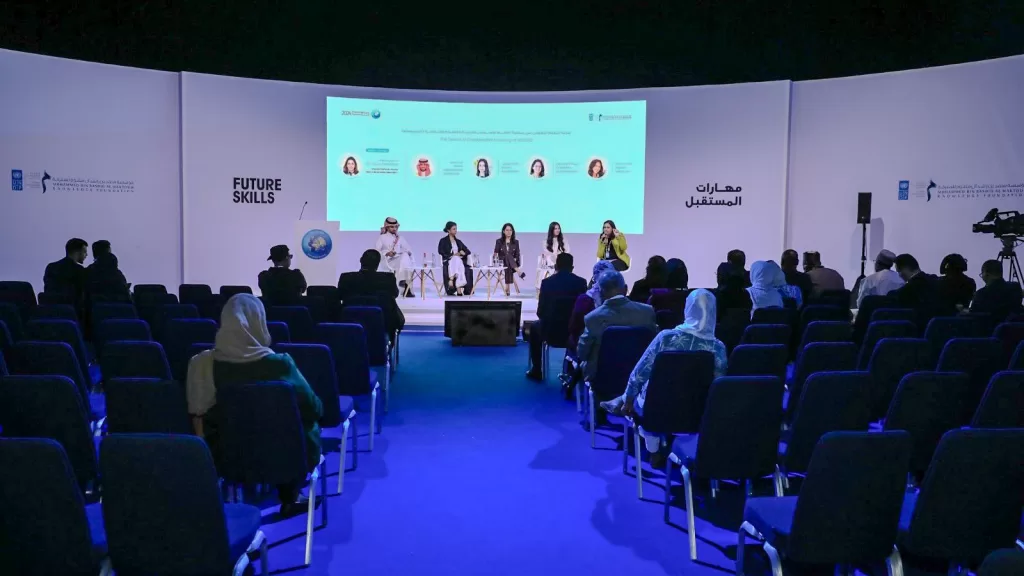
The meeting also discussed a proposal to launch the “Knowledge Experts” platform to coordinate Member States’ efforts in providing accurate data to meet international organizations’ needs and strengthen knowledge partnerships.
As part of the Summit’s activities, ICESCO employees who were recognized as winners of the FutureSkills4All Program, Oumaima Bouhaddioui, Abdulnassir Anggawi, Ikram El Guerrab, and Taqwa Al Ali, highlighted the Organization’s efforts to develop staff capabilities. Dr. Nidal Abu Zuhri reiterated ICESCO’s commitment to advancing technical and creative skills among its staff through innovative training programs.
On the sidelines of the Summit, ICESCO’s delegation met with Dr. Andrew Yan-Tak Ng, renowned computer scientist and founder of DeepLearning.AI. They explored opportunities for collaboration between ICESCO and the platform to develop training programs and innovative technologies that empower youth and support digital transformation across the Islamic world.


